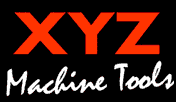Independently owned Wykes Engineering is at the forefront of the green energy revolution, manufacturing a range of products for renewable power generation. Its expertise covers systems including anaerobic digestion, wind power, and solar. Wykes Engineering works in tandem with its sister company; Ancillary Equipment Ltd, a green power generation company that uses its Technology. Demand for new systems and expansion of existing on-site anaerobic generation capacity at its Rushden, Northamptonshire, location led to investment in machining capacity. Part of which saw the arrival of large-capacity turning in the form of an XL 780 lathe from XYZ Machine Tools.

The XYZ XL 780 lathe provides Wykes Engineering with the capability to machine large and small components efficiently with the benefit of the Siemens control being an ideal first step into CNC turning
It was the anaerobic digestion side of the business that required the additional turning capacity provided by the XYZ XL 780. The anaerobic digestion systems produced by Wykes take ‘out of date’ or waste food products from supermarkets, local government household waste sites, and food manufacturers. It then converts them into gas, which is combusted to generate electricity. To maximise this process, food must be separated from its packaging, which requires a variety of shafts in differing diameters and lengths, with hardened protrusions. These rotate at around 1000 revs/min to pulp the waste; the resulting ‘sludge’ is then transferred to storage tanks for anaerobic digestion.
The XYZ XL 780 with its 780 mm swing over the bed and 3-metre distance between centres provides Wykes Engineering with the capacity and versatility it requires for the machining of smaller parts. The purchase of the XYZ XL 780 lathe was Wykes Engineering’s first move into CNC turning, so a priority had to be the ease of use and the support for programmers and operators. The Siemens 828D ShopTurn control proved to be ideal for their needs.
“The Siemens control was completely new to us, but we have found it extremely easy to use, especially with the training support we received from XYZ Machine Tools. We had a demonstration of the machine at XYZ’s Burlescombe factory on a Monday, which convinced us that it was the right machine and control for us. We placed the order the following week and the machine was installed and commissioned just ten days later,” says John Houghton, Wykes Engineering’s Design Engineer.

Over and above the ease of use of the Siemens control, the XYZ XL 780 offered other advantages to Wykes Engineering. First of which was the price, having reviewed the market for lathes of this capacity it found the XYZ machine to be 10-20 percent less expensive than its competitors. Also, they were reassured that service support and spares were readily available should the need arise. Technical support was a big plus with John Houghton commenting: “If we had any questions relating to programming and operating the machine, which was all part of our learning curve, they were answered with a simple phone call to XYZ Machine Tools.”
“The combination of the XYZ XL 780’s versatility, where we can use it for large and small components and the Siemens control means it is easy to repeat jobs accurately when we need to, not only that we are seeing cycle time reductions of around 40 per cent when compared to our manual lathes, with exceptional repeatability between components, which is impacting greatly on workflow through the factory. The arrival of the XYZ XL 780 is also having an impact on component design, as we can now machine features that would either be difficult or time-consuming if machined manually,” says John Cresswell, Wykes Engineering’s Design Office Manager.
The arrival of the XYZ XL 780 brought impressive productivity gains, while most components are one-offs or low volume, they do repeat. The combination of the machine and Siemens control system gives Wykes Engineering a competitive advantage due to the ability to call up a program and quickly replicate something that was produced previously.

